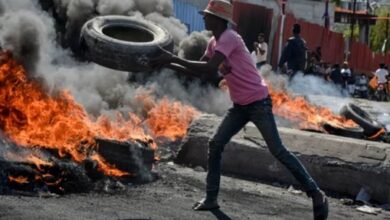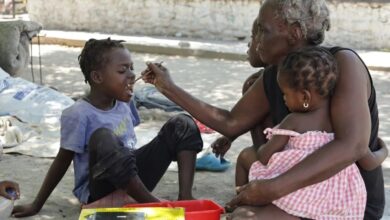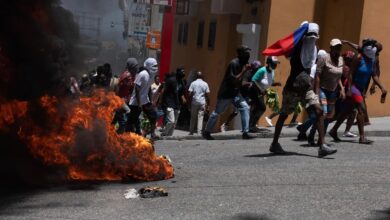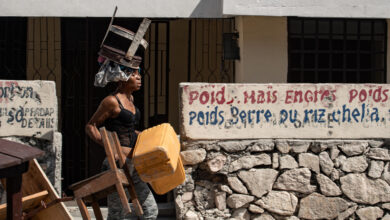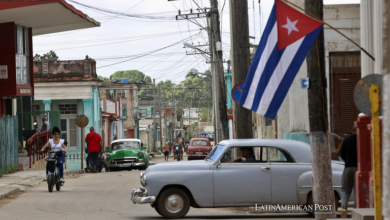Expanding the Arms Embargo in Haiti is a Double-Edged Sword for Law Abiding Citizens
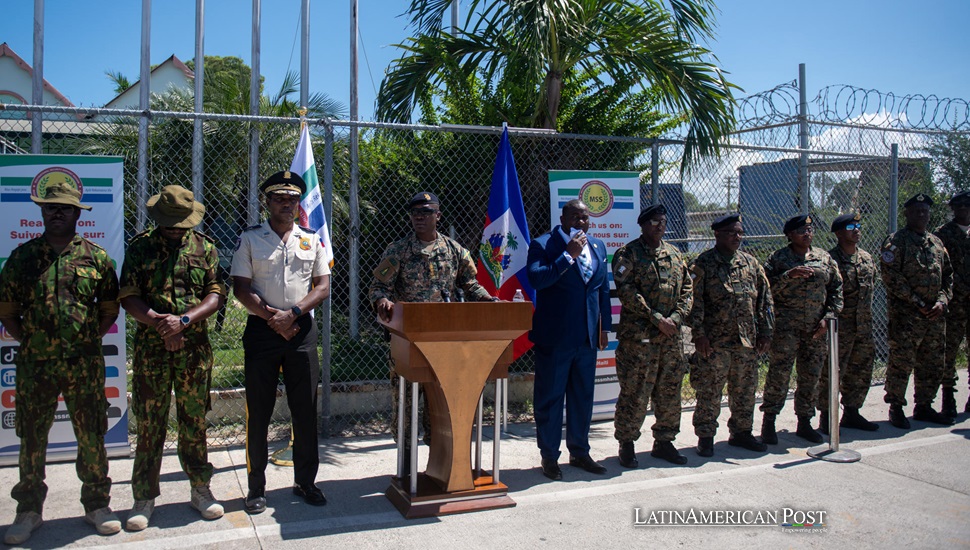
The U.N.’s recent vote to expand the arms embargo in Haiti aims to curb gang violence but also raises concerns about limiting access to weapons for law-abiding citizens. As gangs acquire weapons illegally, this move may tip the balance further in favor of criminals.
A Well-Intentioned Move with Complex Consequences
In a unanimous decision, the U.N. Security Council expanded its arms embargo in Haiti to cover all weapons and ammunition. This move was spurred by the rising levels of gang violence, which have plagued the country since the assassination of President Jovenel Moïse in 2021. Haiti has long been struggling with security issues, with gangs controlling significant portions of the country and terrorizing residents.
The U.N. aims to prevent further chaos by stopping the illicit trafficking of weapons, particularly from the U.S., where arms are often smuggled from Florida into the hands of Haitian gangs. The resolution is designed to cut off these deadly supplies and bring stability to the region, but its implications for everyday Haitians are not so clear-cut.
While the embargo addresses the flow of illegal arms, it also restricts access to firearms for law-abiding citizens. Haiti’s legal system and police force have long struggled to maintain order. By expanding the embargo, the U.N. may unintentionally deprive citizens of the ability to protect themselves, leaving them vulnerable as heavily armed gangs continue to operate with impunity.
How Gangs Gain the Upper Hand with Illicit Weapons
Haiti’s gangs, especially in Port-au-Prince, have expanded their control to 80% of the capital, moving into new territories and terrorizing residents with weapons trafficked illegally. These gangs benefit from a sophisticated network of arms smuggling that brings modern, often military-grade firearms to their doorsteps. Despite the embargo, these groups have continued to receive shipments, arming themselves with far more powerful weapons than Haiti’s citizens or law enforcement officers can access legally.
As U.N. sanctions limit the legal acquisition of arms, these criminal networks only grow bolder. The arms embargo, meant to curtail violence, ironically ends up working to the advantage of gangs, who face little competition when it comes to firepower. According to a recent U.N. report, the influx of arms from the U.S. has given these gangs a significant upper hand, allowing them to intimidate, control, and kill with minimal resistance.
Victor Prophane, a former Haitian parliamentarian, and gang leaders like Elan Luckson of the Gran Grif gang have been linked to arms trafficking that fuels this violence. Even with expanded sanctions, these influential figures often find ways to outmaneuver law enforcement and continue their operations.
A Growing Concern for Citizens
For Haitian citizens caught in the crossfire, the expanded arms embargo adds another layer of concern. While the U.N. resolution seeks to curb the power of gangs, it also makes it harder for law-abiding citizens to obtain weapons for self-defense. In a country where law enforcement is often overwhelmed or outgunned, the ability to own firearms can mean the difference between life and death. However, with stricter embargo rules in place, citizens may find themselves disarmed and defenseless while gangs continue to access weapons through illegal means.
This discrepancy in access to arms is particularly troubling in rural areas, where police presence is limited. In many parts of Haiti, communities have resorted to forming vigilante groups to defend themselves against gangs. But with the arms embargo cutting off supplies of legal firearms, these groups are left with little recourse, relying on whatever weapons they can scavenge or craft. Meanwhile, gangs can acquire advanced weaponry steadily, further exacerbating the power imbalance.
The question then becomes: How can citizens protect themselves when the tools they need for defense are restricted? While the embargo may reduce the number of legally obtained weapons, it doesn’t stop illegal arms from flowing into the country. This dynamic leaves law-abiding citizens at a distinct disadvantage.
The Embargo’s Impact on Haiti’s Fight Against Gang Violence
The U.N.’s expanded arms embargo undoubtedly aims to address a genuine and growing problem in Haiti. Gang violence has spiraled out of control, with brutal massacres, kidnappings, and rapes becoming part of daily life in areas controlled by armed groups. The embargo is part of a broader international effort to help the Haitian government regain control and support its police force, which has struggled to maintain order.
However, the embargo alone cannot solve Haiti’s problems. Without more robust enforcement mechanisms and support for the Haitian National Police, it risks becoming a symbolic measure that disproportionately harms ordinary citizens while failing to disrupt gang operations significantly. As Reuters reported, U.N. experts acknowledge that arms smuggled from the U.S. continue to fuel the violence, with gangs becoming increasingly sophisticated in their operations.
The Security Council’s resolution also calls on Haiti’s government to improve its management of police weapons, ammunition, and seized arms. This step is necessary but may not be enough to stem the tide of violence without addressing the broader issue of law enforcement capacity and corruption. Under pressure from both its people and the international community, the Haitian government must play a crucial role in enforcing the embargo and ensuring that citizens are not left defenseless.
The Haitian government, under pressure from both its people and the international community, must walk a fine line between enforcing the embargo and ensuring that citizens are not left defenseless. While the Kenya-led multinational force continues to support the Haitian National Police, the need for more resources and personnel is clear. As the situation evolves, the effectiveness of the arms embargo will depend primarily on whether it can stop the flow of illegal weapons without stripping citizens of their ability to protect themselves.
Also read: Fight for Survival as Environmental Defenders Targeted in Colombia
While the U.N. Security Council’s expansion of the arms embargo in Haiti is well-intentioned, it raises difficult questions about the balance between limiting gang access to weapons and protecting the rights of law-abiding citizens. As long as criminal groups continue to obtain arms illegally, the embargo may end up deepening the power imbalance, leaving ordinary Haitians vulnerable in a time of crisis. The challenge is to ensure that the blockade works in tandem with broader efforts to strengthen law enforcement and provide security to Haiti’s most at-risk communities. Moreover, it’s important to consider the potential long-term effects of the embargo on Haiti’s security situation and the measures that need to be taken to mitigate these effects.

